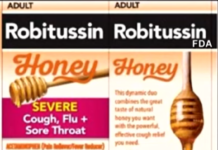In a significant move to safeguard public health, the U.S. Food and Drug Administration (FDA) has recently mandated a boxed warning for the widely used asthma and allergy medication, Singulair (montelukast), and its generic counterparts. This decision, rooted in concerns over serious mental health side effects, marks a pivotal moment in the ongoing evaluation of drug safety.
Understanding the Risks: A Deep Dive into FDA’s Decision
Montelukast, known by its brand name Singulair, has been a common prescription for asthma and allergic rhinitis. However, emerging data has shed light on its potential neuropsychiatric side effects, including, but not limited to, suicidal thoughts and actions. The FDA’s decision to require a boxed warning – the most stringent of warnings – stems from a thorough review of these risks.
The FDA’s analysis revealed a concerning pattern of mental health issues, including agitation, depression, sleeping problems, and suicidal behavior. These findings are not just numbers; they represent real and potentially devastating outcomes for patients. The decision to elevate the warning level is a response to these risks, ensuring that both healthcare providers and patients are fully aware of the potential dangers.
Balancing Treatment and Safety: A Critical Perspective
While the efficacy of Singulair in treating asthma and allergies is well-documented, the FDA’s action underscores a fundamental principle in medicine: the balance between benefit and risk. The agency advises that montelukast should now be reserved for patients who have not responded adequately to other therapies or cannot tolerate them.
This shift in recommendation is particularly pertinent for cases of allergic rhinitis, where alternative treatments are often effective and carry fewer risks. The FDA’s stance is clear: the risks of montelukast may outweigh the benefits, especially when symptoms are mild and manageable with other treatments.
Navigating Treatment Options: What Patients and Healthcare Providers Should Know
The FDA’s updated guidance calls for a proactive approach from both patients and healthcare professionals. Patients currently on montelukast should consult with their healthcare providers to evaluate the necessity of continuing this medication, considering their specific health profile and the severity of their symptoms.
Healthcare providers are urged to weigh the risks of neuropsychiatric events against the benefits of montelukast, particularly for patients with mild symptoms. The new boxed warning serves as a critical reminder to consider all available treatment options and to prioritize patient safety.
A Step Forward in Drug Safety and Patient Awareness
The FDA’s decision to require a boxed warning for montelukast is more than just a regulatory action; it’s a significant step towards greater patient safety and informed decision-making in healthcare. By bringing these risks to the forefront, the FDA is not only ensuring that healthcare providers and patients are better informed but also fostering a healthcare environment where drug safety is continuously monitored and evaluated.
The Road Ahead: Continuous Evaluation and Vigilance
The journey towards ensuring drug safety is ongoing. The FDA’s action on montelukast is a testament to the agency’s commitment to this journey. As new data emerges, the FDA remains vigilant, ready to update recommendations and warnings to protect public health.
For patients and healthcare providers, the message is clear: stay informed, engage in open dialogue, and always consider the full spectrum of benefits and risks when it comes to medication. The decision to use montelukast should be made with careful consideration, guided by the latest information and a thorough understanding of individual health needs.
Conclusion: A Balanced Approach to Healthcare
The FDA’s recent action on montelukast is a reminder of the dynamic nature of healthcare and the importance of staying informed. As we navigate the complexities of medication and treatment, the balance between efficacy and safety remains paramount. With informed choices and a vigilant approach to drug safety, we can ensure that our journey towards health and well-being is both safe and effective.




I like all the drug commercials when they say call your doctor if this drug kills you.
Haha that always gets me, that and “don’t take this drug if you’re allergic to it”